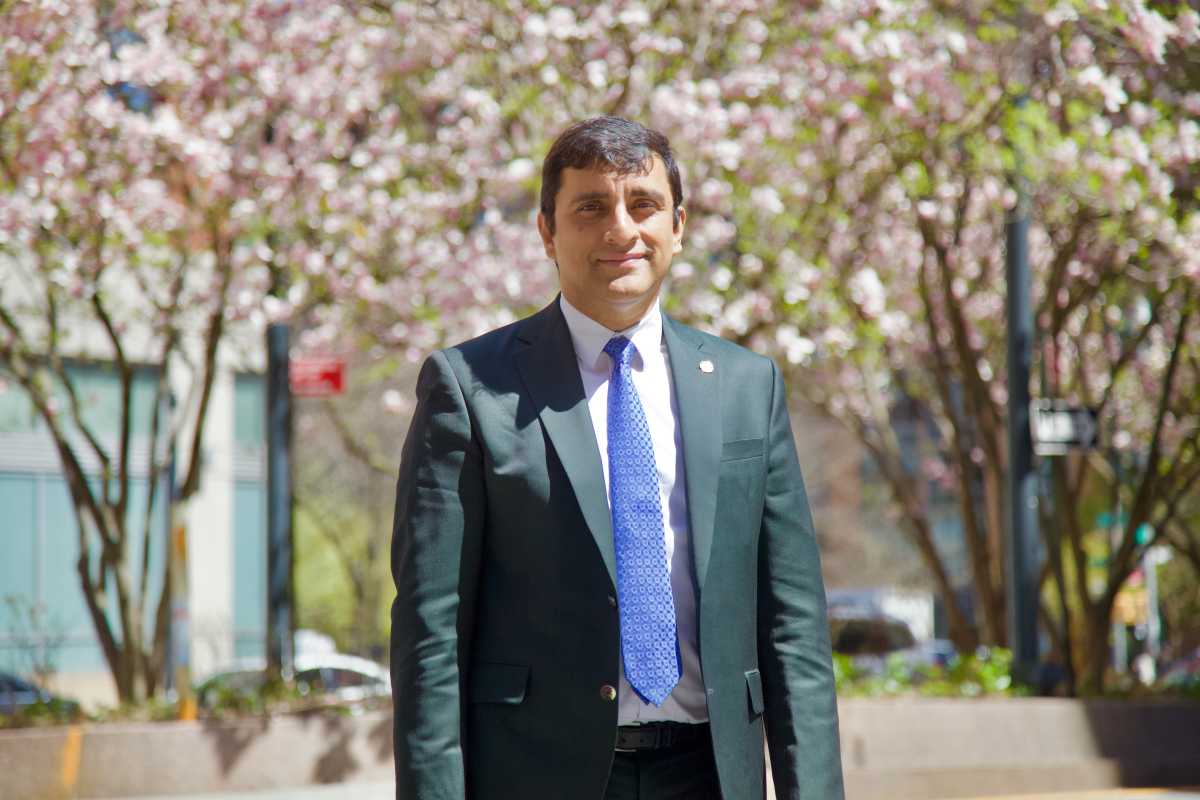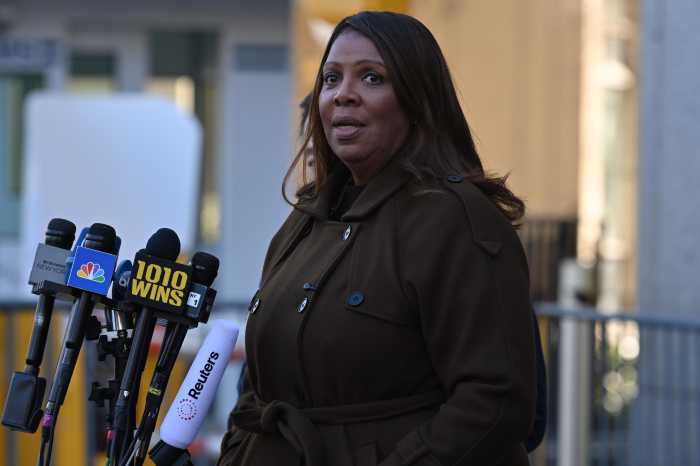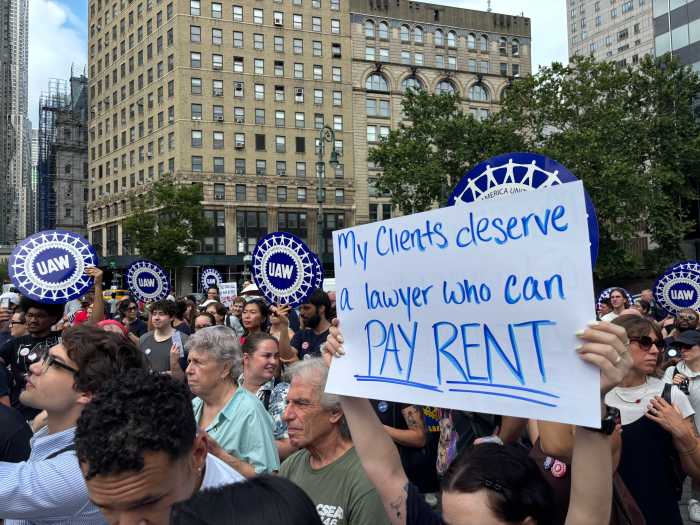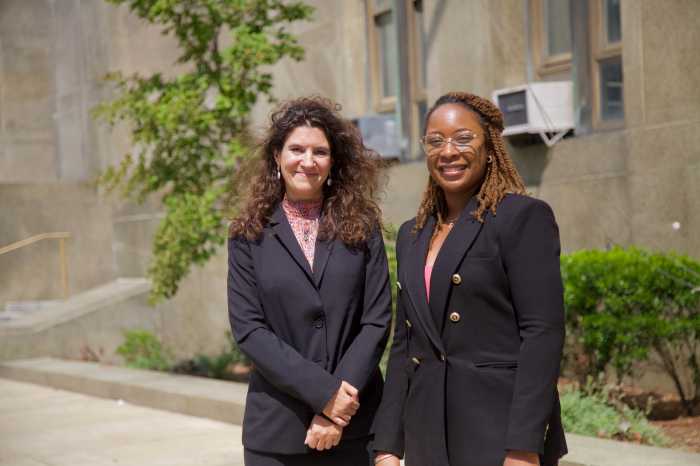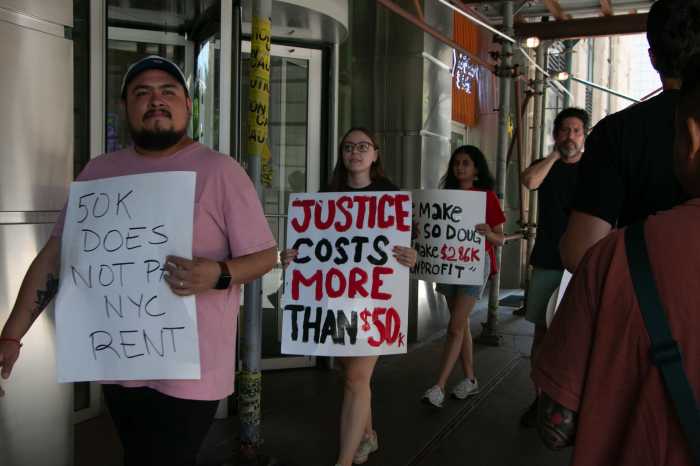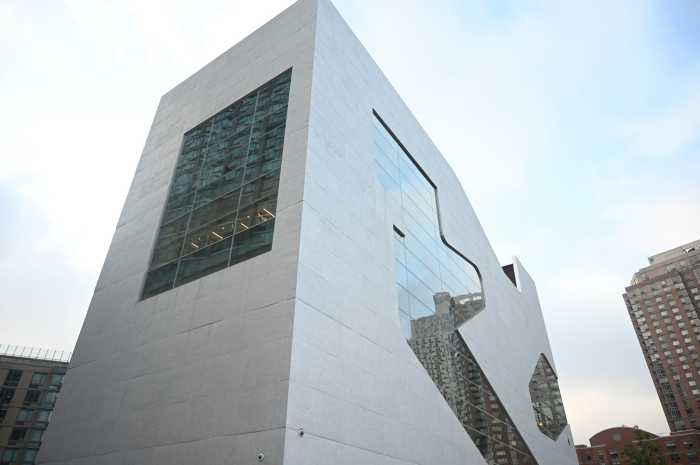For Kapil Longani, senior vice chancellor and general counsel at the State University of New York (SUNY), President Donald Trump’s attempts to disrupt higher education has turned well-established policies into an act of resistance.
After Trump’s executive orders targeted a broadly defined range of “diversity, equity and inclusion” policies, Longani found himself leading the public college system’s legal team on how to respond.
Longani, 49, whose family migrated to the U.S. from India when he was eight months old as a means of escaping the caste system, said his personal experiences with discrimination primed him for this fight over DEI.
When his family moved to Florida, Longani remembers the sense of “complete helplessness” of witnessing a homeowner tell his father, a “dark-skinned brown man,” that he would never sell his house to “people that don’t look like us.”
“What is happening right now with respect to higher education is an existential threat,” Longani said. “We need to be ready to make strategic decisions where there are legal risks that are outweighed by the values at issue.”
His approach has been to double down on policies he said follow the Supreme Court’s 2023 decision banning affirmative action in college admissions while embracing a more loosely defined version of diversity as one of the school system’s four pillars.
“Equality, opportunity, a place where every New Yorker should feel welcome — those values are not negotiable,” Longani told amNY Law. “And I think our chancellor has been crystal clear that alongside the governor and the attorney general, we will fight that fight with everything that we have.”
On Thursday that approach was vindicated by a federal judge in New Hampshire who ruled the Trump administration’s definition of DEI was too vague to threaten public school funding. It is expected that the administration will appeal the ruling.
Longani, whose experience includes serving as a lead investigator for the U.S. House oversight committee and counsel to former Mayor Bill de Blasio, told amNY Law that he sees his leadership of SUNY’s stand against the Trump administration as an extension of his calling as a public interest lawyer.
“The fight to protect DEI is consistent with my life’s mission. It is deeply important. And when we talk about DEI at SUNY, it’s not just about race. DEI is a much broader umbrella. It includes veterans, people with disabilities, first generation students, international students,” Longani said.
The situation that public universities find themselves in is “deeply personal,” he said. “I’ve spent my career as a public servant devoted to addressing issues of equality and justice and opportunity, and in large part how to level the playing field for people in my community,” Longani said.
At the outset of his career, Longani was hired as a litigator by the elite law firm Skadden Arps, which in recent weeks preempted reprisal from the president by offering $100 million in free legal work to causes supported by his administration. After a few years in big law, Longani took a job with the U.S. Attorney’s office and hasn’t looked back on leaving the private sector since. He went on to lead the Flint, Michigan water crisis under former U.S. Rep. Elijah Cummings; and New York City’s COVID response under de Blasio.
With a background of taking on fights over equal treatment under the law, Longani said he sees issues around DEI as a way to level the economic playing field for people of color and marginalized communities.
But as far as SUNY is concerned, its approach has not meaningfully changed since after the U.S. Supreme Court made its ruling against race-conscious university admission in 2023. In the wake of that decision, the board passed a resolution which reiterates its continued commitment to inclusiveness and equity and diversity. It felt safe to uphold these values because even before the decision it didn’t use a race-conscious admissions process, “so that part of the decision was inapposite to us,” he said.
The actions the university system did have to take was to make certain scholarships race-neutral, in accordance with guidance from the Biden administration’s Department of Education. But Longani emphasized SUNY has doubled down on recruiting and outreach efforts to first-generation and underrepresented students with other race-neutral strategies.
When the Trump administration sent out its “Dear colleagues letter” to K-12 and post-secondary educational institutions around the country to end programs meant to serve specific racial groups as “condition of receiving federal funding,” Longani said the SUNY system had no need to change its practices, which still include efforts to diversify the student body.
“We believe that the vast majority of programs that are arguably under the DEI rubric are constitutional. You can’t override lawful DEI practices that are constitutional with an executive order or guidance documents,” he said.
One example is SUNY’s Education Opportunity Program, which provides first-time, full-time freshmen with additional orientation, academic support, supplemental instruction, advising and financial assistance. The program is not based on race, but it does serve students who traditionally have had fewer opportunities in higher education.
“All we could do is try to navigate this turbulent, unpredictable, legal landscape in a way that is both effective and impactful,” Longani said. “But at the end of the day, as a public institution, we have a vital role in protecting inclusion.”
Trump’s letter over DEI practices wasn’t SUNY’s first legal battle over funding. A week before that action, the administration had proposed a cap on institutions receiving funds through the Institutes of Health on “indirect funds” for costs like buildings, utilities and support staff.
For SUNY’s top-tier research programs at SUNY Stony Brook and the University of Buffalo, the cuts “would’ve had a massively negative impact on our ability to do lifesaving research related to 9/11 health issues and life-threatening diseases. They’re doing work on cures for cancer, Alzheimer’s, Parkinson’s, neurodegenerative diseases that have effects on millions of people,” he said.
Across the system, the executive order would potentially have affected $79 million in funding, according to SUNY. After the cuts were announced on a Friday in early February, Longani joined a multi-state lawsuit led by the New York Attorney General’s office to work through the weekend supporting an effort against the federal administration over the caps. The coalition secured a nationwide preliminary injunction preventing the cuts, but the case is still in litigation.
The other front that has popped up in the Trump administration’s policy demands to universities like Harvard is the requirement to report foreign students who commit conduct violations related immediately to federal authorities. In the case of Mohsen Mahdawi, the Columbia University student detained by Immigration and Customs Enforcement in relation to his pro-Palestinian activism, State Department officials appear to have echoed the university reports in their justification for his arrest.
Longani said that cases like Mahdawi and his fellow detained student activist Mahmoud Khalil’s involve a balance between their First Amendment free speech protections and the racial and religious liberties that ensure Jewish students feel safe on campus from antisemitism. Though he declined to weigh in on the legitimacy of those cases in particular, which some of Trump’s critics have called an open attack on the freedom of speech, he stressed that SUNY has been clear that it wants to support international students.
“People in these communities who are on visas, for example. There is a feeling of discomfort and anxiety. Every time there’s a knock on their door, they don’t know who’s on the other side of that door. It’s paramount that we do everything we can to make sure that these students feel supported,” he said.
If ICE shows up on campus, it will take a court order for the SUNY administration to release any information, he said.
“It is consistent with what the chancellor and the state of New York believe to be the correct interpretation of the law. We are never gonna violate the law, but we are not gonna turn over information about our students and their immigration status [without a judicial warrant],” he said.
In the case that students see immigration enforcement on campus, Longani said students should immediately reach out to the Office of General Counsel and to the university police department. One thing that the university can do is to connect students to New York’s Office of New Americans, which provides legal help and information through community providers.
“These are hard fights,” he said, “but they’re fights that I feel really privileged to be a part of.”



